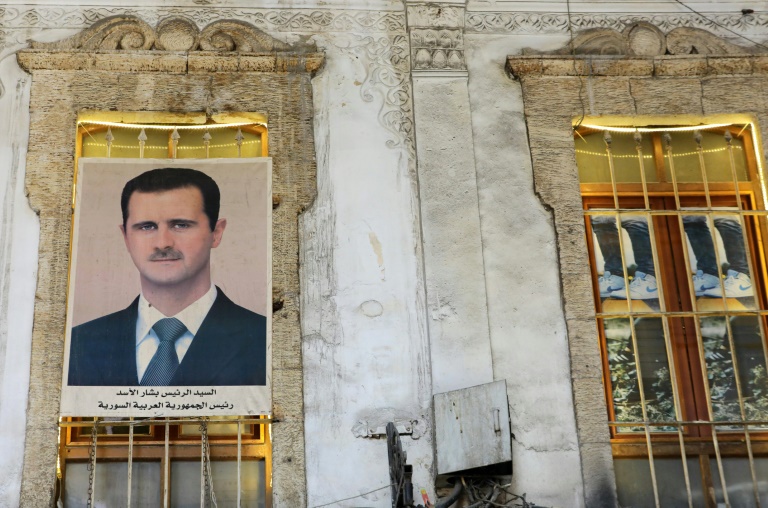Syria’s Assad visits China seeking funds

Assad will meet with Xi in Hangzhou
Hangzhou – Syrian President Bashar Al-Assad begins on Thursday his first official trip to China in almost two decades, where he will ask a longtime ally for financial support to help rebuild his devastated country.
China will become one of only a handful of countries outside the Middle East that Assad has visited since the 2011 start of a war that has since killed more than half a million people, displaced millions more, and battered Syria’s infrastructure and industry.
Assad also becomes the latest in a string of leaders ostracised by the West to be feted by Beijing, with Venezuelan leader Nicolas Maduro, Iran’s President Ebrahim Raisi, as well as top Russian officials, all visiting this year.
On Saturday, Assad will attend the opening ceremony of the Asian Games in the eastern city of Hangzhou. He and other foreign leaders will meet there with Xi, Chinese state broadcaster CCTV said.
According to the Syrian presidency, he will also visit Beijing.
The visit will be Assad’s first to China since 2004.
Beijing has long provided Damascus with diplomatic support, particularly at the UN Security Council where it is a permanent member.
Officials from both countries have also made visits over the years.
“This visit represents an important rupture in the diplomatic isolation and the political siege imposed on Syria,” Damascus-based political scientist Oussama Dannoura told AFP.
“China has been breaking Western taboos that seek to prevent a number of states from dealing with countries that Washington considers isolated,” he added.
– Growing presence –
The visit comes as China expands its engagement in the Middle East.
Earlier this year Beijing brokered a deal that saw longtime regional rivals Saudi Arabia and Damascus backer Iran agree to restore ties and reopen their respective embassies.
The detente was followed by Syria’s return to the Arab fold at a summit in Saudi Arabia in May, ending more than a decade of Damascus’s regional isolation.
In 2019, top diplomat Wang Yi told the country’s then-foreign minister Walid Muallem that China “firmly supports Syria’s economic reconstruction” and its efforts to “combat terrorism”.
Syria’s war began after Assad’s repression of peaceful pro-democracy protests escalated into a deadly conflict that pulled in foreign powers and jihadists.
Assad’s regime has branded all opponents — from non-violent activists to armed rebels and jihadists — as “terrorists”.
“Assad intends for his trip to China to convey a sense of international legitimacy for his regime and paint a picture of looming Chinese support for reconstruction in Syria,” said Lina Khatib, director of the Middle East Institute at SOAS.
Khatib noted that the timing is significant, with Assad now facing protests calling for regime change in southern Syria.
“It is unlikely that either (intention) will be convincing to an increasingly restive population in Sweida,” added Khatib, referring to a Syrian city where protests are ongoing.
– Economic aid –
Recent months have seen Beijing roll out the red carpet for a string of autocrats, from Belarusian leader Alexander Lukashenko to a delegation of officials from Afghanistan’s Taliban government.
And foreign minister Wang is this week in Moscow, which faces a raft of Western sanctions over its war in Ukraine.
After welcoming Xi in Moscow earlier this year, Russian President Vladimir Putin is planning a visit to China in October, the Kremlin has said.
Analysts expect Assad’s visit to China will focus, in part, on funds for reconstruction.
Syria signed up to China’s vast Belt and Road trade and infrastructure initiative in January 2022.
Haid Haid, a Consulting Fellow at London’s Chatham House, wrote on X that “the focus of this meeting is expected to revolve around convincing China to aid Syria’s economic recovery”.
China pledged $2 billion in investments in Syria in 2017, Haid noted — funds that have “yet to materialise”.
For Syria, joining the BRI “hasn’t resulted in significant Chinese investments in Syria, either from the Chinese government or the private sector”, he said.
